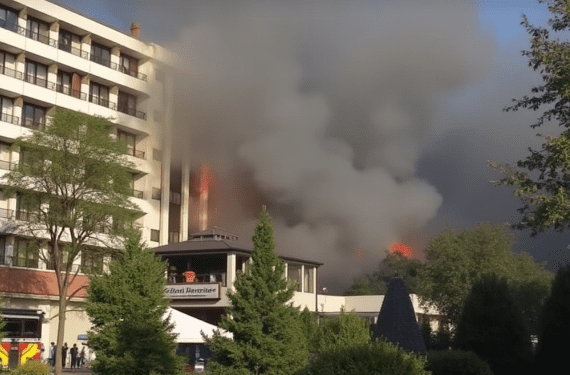On November 11, 2024, Russian military officials announced the capture of several additional settlements in eastern Ukraine as part of ongoing efforts to secure strategic positions in the region. This development signals a continuation of hostilities that have reshaped the political and humanitarian landscape in Eastern Europe since Russia’s initial invasion in 2022. The latest advances are part of Russia’s broader military push, further complicating peace efforts and raising international concerns over the potential for prolonged conflict.
Background of the Conflict
The Russian-Ukrainian conflict, initially sparked in 2014 by Russia’s annexation of Crimea and subsequent support of separatist movements in the Donbas region, escalated into full-scale warfare with Russia’s 2022 invasion. The conflict has led to significant loss of life, displacement of millions, and the imposition of severe sanctions on Russia by Western countries.
Since 2022, Ukraine has mounted a strong defense, regaining some territories with the support of international allies who have provided financial aid and military resources. The conflict has seen shifting frontlines, with both sides engaging in intense military campaigns over strategic areas in Ukraine’s eastern and southern regions.
Details of the Recent Advancements
According to Russian military sources, the new advances were achieved in two unnamed settlements located within the eastern region of Donetsk, a critical area due to its industrial resources and symbolic significance. Russian forces claim that these territories were taken to solidify control over key transportation routes and logistical hubs essential for sustaining their positions in the eastern front.
The Russian Ministry of Defense reported that the advancements were the result of a “planned and calculated operation” involving infantry units supported by armored vehicles and artillery. The objective, as stated by Russian officials, is to eliminate resistance pockets and secure additional defensive lines to protect previously occupied areas.
Ukraine, however, has disputed the extent of Russian gains, asserting that its forces continue to resist in several areas. Ukrainian military officials have described the situation as fluid, with ongoing skirmishes and counterattacks aiming to prevent Russian forces from consolidating their hold on newly captured locations.
Impact on Civilians and Humanitarian Concerns
The capture of new settlements has worsened an already critical humanitarian situation in the region. Reports from local organizations indicate that residents in the contested areas face severe shortages of food, water, and medical supplies. Ukrainian authorities have raised alarms about the challenges in reaching affected civilians, as Russian advances cut off crucial supply routes. This leaves many communities vulnerable and isolated from essential services.
In response, international aid organizations, including the International Red Cross, have called for ceasefire agreements in specific corridors to allow humanitarian aid deliveries. These organizations are also urging both Russia and Ukraine to respect the rights of civilians caught in conflict zones, highlighting the urgent need for evacuation and medical assistance for the injured.
Ukrainian Countermeasures and Strategic Response
In reaction to these recent advances, the Ukrainian military is reportedly reinforcing positions around Donetsk to prevent further encroachment by Russian forces. Ukrainian President Volodymyr Zelensky has renewed calls for international support, emphasizing the need for additional defensive equipment and intelligence assistance to withstand the Russian onslaught.
The Ukrainian government has also signaled its commitment to a counteroffensive strategy. Military experts note that Ukraine is likely to focus on targeting Russian supply lines and communication hubs to slow down and disrupt Russian operations. This approach has been effective in past engagements, where Ukrainian forces succeeded in reclaiming territories in Kherson and parts of the Donbas region.
International Response and Diplomatic Efforts
The recent developments have reignited global concern over the escalating conflict. The United Nations, European Union, and NATO have all condemned Russia’s continued military actions in Ukraine, with calls for a diplomatic resolution to the crisis. The United States and European allies have reiterated their support for Ukraine, with promises of additional military aid to bolster Ukraine’s defense capabilities.
Diplomatic efforts, however, remain stalled as Russia continues to demand concessions that Ukraine and its allies consider unacceptable. Efforts by international intermediaries to broker a peace deal have thus far been unsuccessful, with neither side willing to compromise on issues of territorial integrity and sovereignty.
In addition, the conflict has placed significant strain on Europe’s energy resources, as Russia has been a key supplier of oil and gas. The prolonged conflict has led to economic repercussions, with European nations seeking alternative energy sources to reduce dependency on Russian energy imports. This energy crisis is expected to have lasting economic effects and underscores the need for a swift resolution to the conflict.
Potential Consequences and Regional Implications
The latest Russian advances in Ukraine reflect a persistent and intensifying military effort that may lead to further destabilization in Eastern Europe. Analysts warn that continued Russian gains could embolden separatist movements in other regions, potentially impacting the stability of neighboring countries and heightening the risk of broader regional conflict.
Furthermore, Russia’s actions have underscored the limitations of economic sanctions and diplomatic isolation, as Moscow continues to prioritize its military objectives in Ukraine. This reality raises questions about the effectiveness of current international strategies and whether alternative measures might be necessary to influence Russia’s actions.
Conclusion
The recent capture of settlements in eastern Ukraine by Russian forces highlights the ongoing intensity of the conflict, with significant implications for regional stability, international relations, and the humanitarian crisis within Ukraine. As Ukraine mounts its defense and international support remains steadfast, the outcome of these advancements will shape the trajectory of the conflict and the prospects for a peaceful resolution.
The international community faces mounting pressure to support Ukraine while pursuing avenues for peace, mindful that the stakes extend beyond Ukraine’s borders and have far-reaching consequences for global security.





